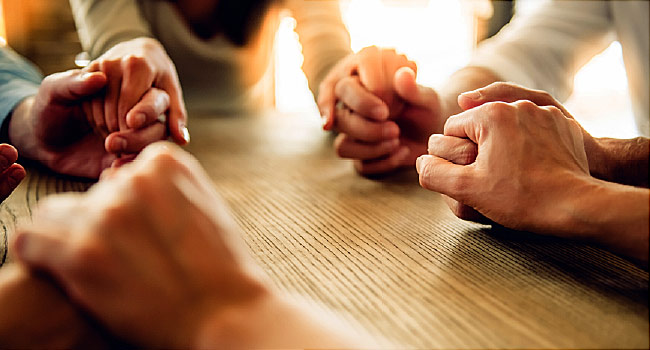UAMS Study Finds Many Rural Women Cancer Patients Receive Financial Support through Social Networks
| FAYETTEVILLE — Rural women with cancer often receive financial support from within their communities and from formal organizations, but not all patients have equal access to this assistance, according to a study conducted by researchers at the University of Arkansas for Medical Sciences Office of Community Health & Research.
To better understand financial challenges and financial support related to cancer care in rural areas, UAMS researchers interviewed rural women cancer survivors and found that financial assistance often comes from social networks — such as family members and friends — and included cash support, donations and community fundraisers. Some participants also said they received aid from formal institutions, such as hospital-based patient navigation or social work programs or charities.
Community fundraisers were a major form of help for some rural women with cancer, and reflected the desire of rural towns and small communities to help their members in need. As one study participant recalled, “They had this benefit for me. It was a dinner and dance at the VFW… All in all, with the community donations, I would say it was well over $25,000. That’s a good thing about living in a small town.”
In terms of formal assistance, one participant, who could not afford her oral chemotherapy medication, shared, “They had a patient advocate there at the cancer center who said, ‘Okay, we will talk to somebody,’ and so I did get a grant to pay for that (medication).”
Cancer is one of the most expensive medical conditions in the United States. In 2019, data from the National Cancer Institute revealed that American cancer patients paid a total of $16 billion in out-of-pocket costs related to cancer treatment. Many cancer patients experience financial hardship related to treatment, a strain that is often worse for patients in rural areas due to limited health care access, said Emily Hallgren, an assistant professor in the Office of Community Health & Research.
“Both forms of financial assistance were helpful to many cancer patients,” Hallgren said. “However, not all participants who needed financial assistance received it. Given rural patients’ vulnerability to financial burdens related to cancer treatment, it is important to understand who is receiving financial assistance and who is left out.”
Participants in the study who reported receiving little assistance reported fewer social connections within their communities and live in more geographically remote areas.
According to the Arkansas Cancer Coalition, more than 40% of Arkansas’ population live in rural areas and are at a higher risk for developing cancer and other diseases due to increased risk factors, lack of health care resources and barriers often faced by rural residents.
The UAMS Winthrop P. Rockefeller Cancer Institute has developed a cancer navigation program to help cancer patients across the state gain access to local resources. To connect with a navigator, patients may call 1-855-569-3691 or email COE@uams.edu. A physician referral is not required.
The study, Informal and Formal Financial Assistance to Rural Women During Cancer Treatment, was published in “SSM – Qualitative Research in Health.”
The UAMS Northwest Regional Campus includes 329 medical, pharmacy, nursing and health professions students, 66 medical and pharmacy residents, and two sports medicine fellows. The campus has nine clinics including a student-led clinic, orthopaedics and sports medicine, and physical, occupational and speech therapy. Faculty conduct research to reduce health disparities.
UAMS is the state’s only health sciences university, with colleges of Medicine, Nursing, Pharmacy, Health Professions and Public Health; a graduate school; a hospital; a main campus in Little Rock; a Northwest Arkansas regional campus in Fayetteville; a statewide network of regional campuses; and seven institutes: the Winthrop P. Rockefeller Cancer Institute, Jackson T. Stephens Spine & Neurosciences Institute, Harvey & Bernice Jones Eye Institute, Psychiatric Research Institute, Donald W. Reynolds Institute on Aging, Translational Research Institute and Institute for Digital Health & Innovation. UAMS includes UAMS Health, a statewide health system that encompasses all of UAMS’ clinical enterprise. UAMS is the only adult Level 1 trauma center in the state. UAMS has 3,240 students, 913 medical residents and fellows, and five dental residents. It is the state’s largest public employer with more than 11,000 employees, including 1,200 physicians who provide care to patients at UAMS, its regional campuses, Arkansas Children’s, the VA Medical Center and Baptist Health. Visit www.uams.edu or www.uamshealth.com. Find us on Facebook, Twitter, YouTube or Instagram.
###
